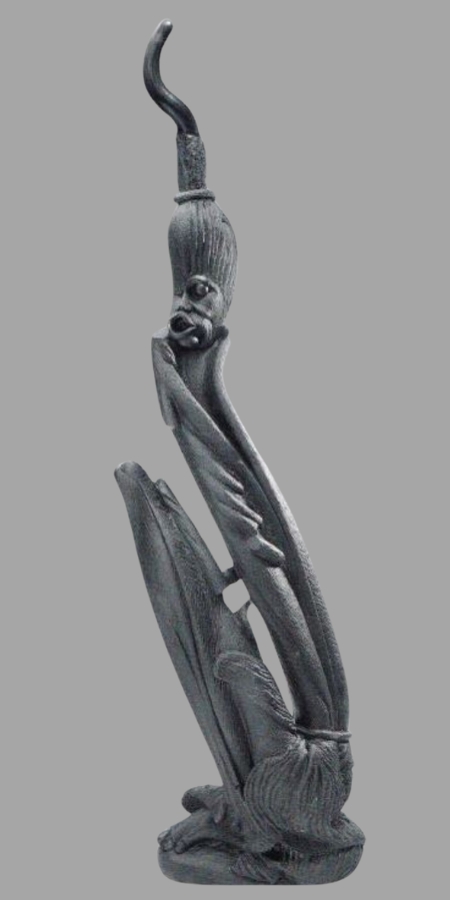The Significance of the Queen in Shona Culture
In Shona culture, the queen plays a crucial role as the spouse of the king, and she is an essential symbol of power, prestige, and cultural heritage. The queen is highly respected and revered in Shona society and holds a prominent place in the kingdom.
Shona Queen sculpted by Sampson Kuvenguhwa
Preservation of Traditional Customs and Values
The queen is responsible for preserving and promoting traditional customs and values in Shona culture. She ensures that the customs and values of the kingdom are passed down to future generations. The queen also promotes the importance of education, respect, and discipline among the people of the kingdom.
For instance, the queen may organize cultural events and festivals to showcase the kingdom's customs, traditions, and values. She may also provide support to cultural institutions and organizations that are dedicated to preserving and promoting Shona culture.
Social and Community Initiatives
The queen is also involved in social and community initiatives that aim to improve the lives of the people in the kingdom. She may work with local organizations to provide healthcare, education, and other essential services to the community.
The queen may also support initiatives that promote the empowerment of women and children in the kingdom. For example, she may provide funding for women's groups and youth organizations that focus on education and training.
Representative of the Kingdom
The queen serves as a representative of the kingdom in diplomatic and ceremonial events. She may accompany the king on official visits to other countries or receive foreign dignitaries who visit the kingdom.
The queen represents the kingdom's culture, traditions, and values during these events. She may also use these opportunities to promote the kingdom's economic and social development.
Role in Governance
In some cases, the queen may play an influential role in the governance of the kingdom and serve as an advisor to the king. The queen's role in governance is based on her knowledge, experience, and wisdom.
The queen may provide counsel to the king on matters of state, including issues related to economic development, social welfare, and national security. She may also serve as a mediator in disputes between different factions in the kingdom.
The queen is a significant figure in Shona culture, and her role goes beyond being the consort of the king. The queen's responsibilities include preserving traditional customs and values, supporting social and community initiatives, representing the kingdom, and playing an influential role in governance. The queen's importance in Shona culture is deeply rooted in the kingdom's cultural, historical, and spiritual traditions.
